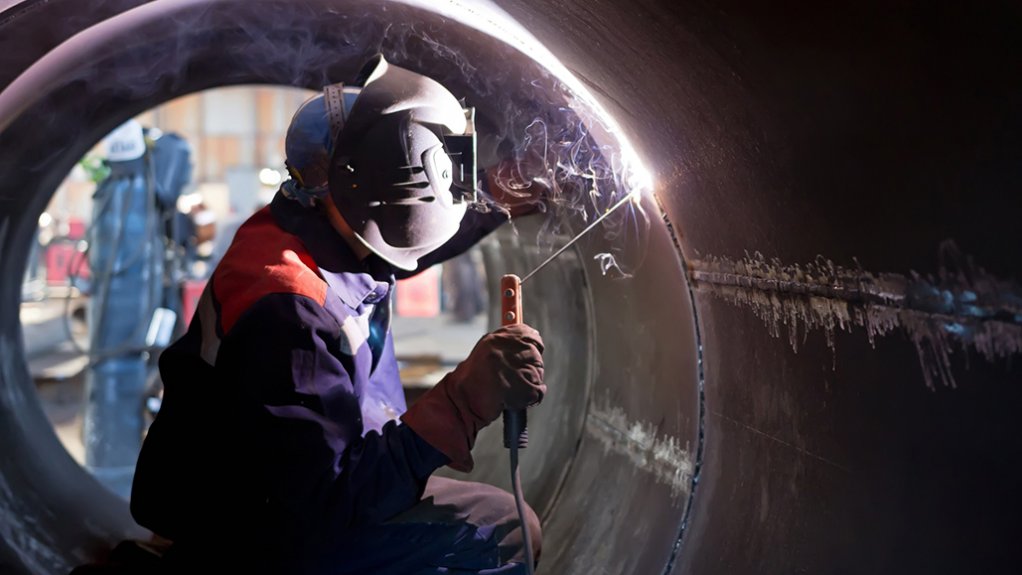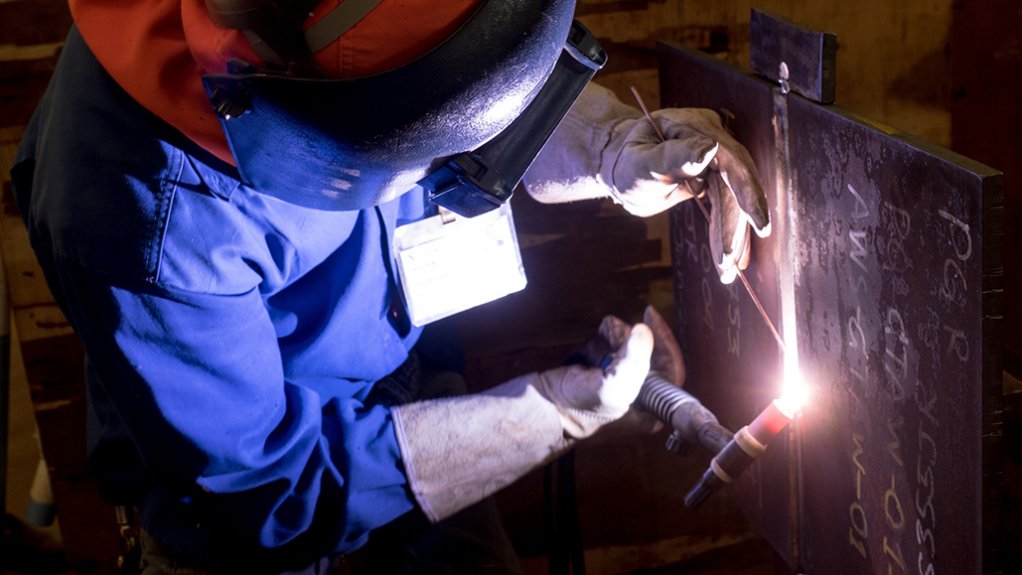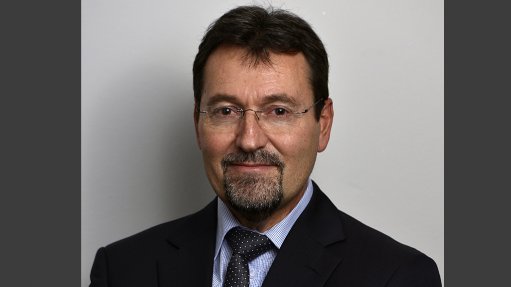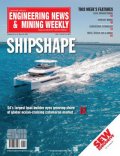Collaboration key to boosting African capacity



EMPOWERING AFRICA’S CAPACITY The TWF personnel qualification and certificate scheme is a vehicle to build, integrate and sustain welding skills and technical capacity development in Africa
VITAL INDUSTRY CONTRIBUTION The SAIW has been critical in providing direction for growing commitment and sustaining capacity in welding technology, and addressing manufacturing needs in Africa
Local industry body the Southern African Institute of Welding (SAIW) wants the Welding Federation Africa (TWF) – formed in 2017 – to be a vehicle to improve the welding capacity of every African country that has TWF members, states SAIW executive director John Tarboton.
“This is not in terms of training only welders but also welding inspectors and welding supervisors. Welding is a key enabling technology that countries need if they are to industrialise and experience economic growth.”
The SAIW is a founding member of TWF, whose goal is to provide a platform for professionals in the welding industry to network, share knowledge and collaborate towards achieving sustainable development through welding.
TWF executive director Ayo Adeniyi emphasises the importance of the SAIW’s involvement, noting that the SAIW is a leader in welding technology, with decades’ worth of experience and contributions to the African welding industry.
The SAIW has been critical in providing direction and momentum for growing commitment and sustaining capacity in welding technology, thereby addressing manufacturing needs in Africa, Adeniyi adds.
“Being part of TWF gives the SAIW ideal exposure in Africa. The SAIW is a founding member of the International Institute of Welding, and we are its approved nominated body for South Africa,” states Tarboton.
The SAIW’s contributions include hosting the TWF secretariat on behalf of Africa, playing a critical role in the development of the federation’s welding inspection and pressure vessel schemes, and contributing to its research framework, which aims to sustain continual improvement in Africa’s industries, Adeniyi explains.
The success of TWF’s first yearly assembly and conference – held in March in Cairo, Egypt – was “a huge success” and a testament to the coordination and collaboration by professionals and stakeholders in Africa.
The assembly helped to cultivate ideas and solutions that address Africa’s manufacturing industries, he adds.
Adeniyi says the second yearly assembly and conference – to be held next year in Lagos, Nigeria – aims to bring major improvements on the back of the successful assembly in Egypt.
Building Certification Capacity
Adeniyi emphasises the challenges – including a lack of financial capacity and policy infrastructure, as well as policy inconsistencies – in assisting companies in TWF member countries with certification.
He also stresses that the TWF personnel qualification and certificate scheme is a reliable vehicle to build, integrate and sustain a commitment to welding skills and technical capacity development in Africa’s manufacturing industries at the most cost-effective rate.
TWF’s schemes are primarily designed to address technical requirements specified in applicable industry codes, as well as unique welding practices in Africa’s industrial space.
“TWF personnel certificate holders will be equipped with adequate knowledge and technical skills to handle current and emerging challenges in industries across Africa and globally,” he adds.
These schemes will cost-effectively equip Africa’s labour force with competitive and complementary technical skills and promote the integration of opportunities across Africa’s manufacturing industry.
TWF personnel certifications will empower Africans and provide access to work opportunities and provide industries with access to skills to meet both national and African content targets in manufacturing.
“Africa’s manufacturing industry has been characterised by chaos for decades, to the disadvantage of investors, manufacturers and skilled workers. The TWF’s personnel qualification and certification scheme is already restoring hope in several ways, including boosting investor confidence, improving the capacity of members and empowering individuals.”
Restoring Confidence
Through these schemes, investors will also have access to verifiable data regarding which investment concerns can be addressed or managed, says Adeniyi.
Companies from TWF member countries will also be able to access an “inexhaustible pool of knowledge, and technically competent personnel to harness in addressing technical challenges in manufacturing”.
Further, technical capacity will be boosted through technical collaboration, or experience sharing, within the TWF network, he adds.
The schemes will also allow for a reduction in the cost of hiring skilled people by ensuring access to high-level skills, regardless of national boundaries, to complement any country’s labour force.
TWF schemes will contribute to growing national capacity to meet local-content concerns through skills mobility.
Adeniyi also contends that most importantly, TWF will enhance the movement of skilled persons across Africa based on interest, expertise and exposure. This will not only boost the reputation and expertise of countries in certain industry specifications but will also have a ripple effect on other nonindustrial sectors.
“The goal is to empower the average African with unrestrained access to opportunities across Africa, which will reduce the high rate of human capital losses associated with Africa,” he concludes.
Comments
Announcements
What's On
Subscribe to improve your user experience...
Option 1 (equivalent of R125 a month):
Receive a weekly copy of Creamer Media's Engineering News & Mining Weekly magazine
(print copy for those in South Africa and e-magazine for those outside of South Africa)
Receive daily email newsletters
Access to full search results
Access archive of magazine back copies
Access to Projects in Progress
Access to ONE Research Report of your choice in PDF format
Option 2 (equivalent of R375 a month):
All benefits from Option 1
PLUS
Access to Creamer Media's Research Channel Africa for ALL Research Reports, in PDF format, on various industrial and mining sectors
including Electricity; Water; Energy Transition; Hydrogen; Roads, Rail and Ports; Coal; Gold; Platinum; Battery Metals; etc.
Already a subscriber?
Forgotten your password?
Receive weekly copy of Creamer Media's Engineering News & Mining Weekly magazine (print copy for those in South Africa and e-magazine for those outside of South Africa)
➕
Recieve daily email newsletters
➕
Access to full search results
➕
Access archive of magazine back copies
➕
Access to Projects in Progress
➕
Access to ONE Research Report of your choice in PDF format
RESEARCH CHANNEL AFRICA
R4500 (equivalent of R375 a month)
SUBSCRIBEAll benefits from Option 1
➕
Access to Creamer Media's Research Channel Africa for ALL Research Reports on various industrial and mining sectors, in PDF format, including on:
Electricity
➕
Water
➕
Energy Transition
➕
Hydrogen
➕
Roads, Rail and Ports
➕
Coal
➕
Gold
➕
Platinum
➕
Battery Metals
➕
etc.
Receive all benefits from Option 1 or Option 2 delivered to numerous people at your company
➕
Multiple User names and Passwords for simultaneous log-ins
➕
Intranet integration access to all in your organisation




















